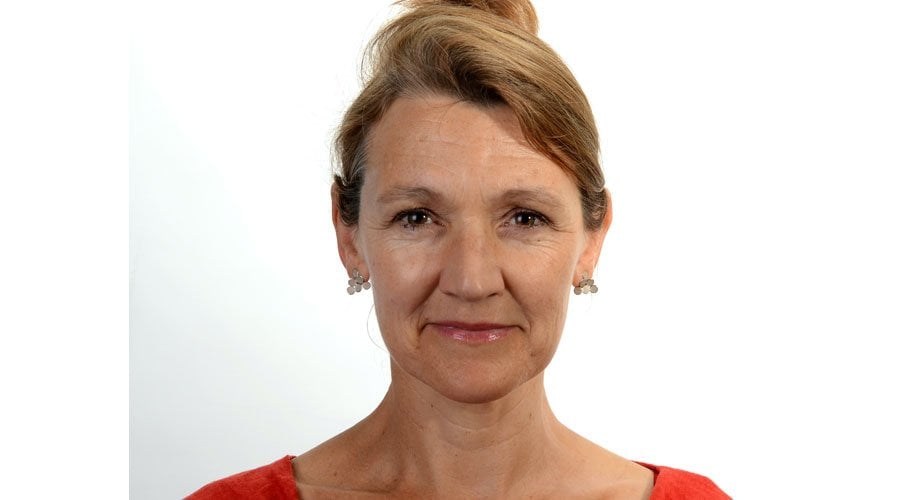Alumni Profile: Sian Williams
31 October 2022 London School of Hygiene & Tropical Medicine London School of Hygiene & Tropical Medicine https://lshtm.ac.uk/themes/custom/lshtm/images/lshtm-logo-black.png
Current job title and organisation
Freelance healthcare consultant, CEO International
Primary Care Respiratory Group
What course and year did you study at LSHTM?
Health Services Management, 1994
Why did you decide to study at LSHTM?
I was working in a north London health authority planning department and I wanted to do a part-time Masters in Public Health to support my work because although I’d done the fast track NHS Management Scheme (after time working in a ballet company…) my previous degree was in History/History of Art. LSHTM was local and offered what I was looking for. Looking back we had such a great teaching faculty: Charles Normand, Josep Figueras, Nick Black, Jennifer Dixon and the much missed Phil Stone. Nigel Edwards and Jennifer Dixon were just starting out on their stellar policy careers.
How has your degree at LSHTM complemented your career?
Together with an undergraduate degree from Cambridge, my master’s degree has given me the confidence to ask questions to clinicians and academics - those in power.
Were the relationships you formed at LSHTM useful – in what way?
As a mature part-time student, I enjoyed being able to consider, with the teaching staff, how the science applied to my work. I also met colleagues from around the world who helped me understand my health system better, learning what is country or district specific, what is global.
Please summarise your achievements over the years and how you feel about them?
My career is a true portfolio career. I worked for the NHS in senior management positions for 10 years on the planning and stakeholder engagement side. I left because my preferred style of working, as a network connector and boundary spanner, is quite challenging in bureaucracies. I was headhunted to lead a medical education division of a large health communications agency which gave me a new range of skills which I continue to use, and also an understanding of the pharmaceutical industry, that was often our client. I was on a very steep learning curve on that, and it’s given me confidence to negotiate with and challenge the industry. I then moved to a start-up management school, teaching customer service to supermarket and retail teams, further consolidating my stakeholder engagement approaches. After that, I have been a freelancer and, as a result of contacts gained over time, have specialised in respiratory health. I programme managed an innovative integrated care programme called IMPRESS - a collaboration between the British Thoracic Society and Primary Care Respiratory Society focused on improving value, co-led the London Respiratory Team and Network, and the Helping Smokers Quit in London programme for the NHS in London. Each time we had a high-performing trio of a primary care clinician, secondary care clinician and manager. I co-founded a respiratory charity 20 years ago - the international Primary Care Respiratory Group - with clinical colleagues from low middle and high income countries. We’ve just celebrated 20 years. We’ve delivered practical guidance and also a European Horizon 2020 programme FRESHAIR. We have a very virtual structure of freelancers working from home. We are doing creating more audio visual material for clinicians to share with people with chronic respiratory problems eg www.ipcrg.org/howwebreathe and www.ipcrg.org/copdmagazine.
What do you hope to further achieve in your field in the future?
I like a balance of micro and macro. So, I hope to continue to influence global respiratory strategies, working with various international networks, and at the same time I set up a dance group for people with chronic breathlessness in 2017 as a proof of concept and to finally tie up my first career in arts management with my second in health management. My goal is to inspire other dance teachers and health workers to incorporate dance as a way to keep physically, cognitively and socially active and to generate evidence to influence future guidance. Although to be honest how much evidence do we really need that dancing is beneficial to health? The issue is how to organise it and recruit people with multiple morbidities including breathlessness to join.
Have you connected with alumni since leaving LSHTM? And if so, how did you get involved?
Not much. Maybe the time is right now!
What advice do you have for current students?
Keep in mind the ultimate beneficiary of your work. Who is it for? Why is it important? Let that drive you rather than necessarily the lure of status or academic position.
Do you have any stand out memories from LSHTM for our #LSHTMemories page in the Alumni Magazine?
Nothing major although I remember our group chose to develop our research programme on acne and it was rather ridiculed at the time. I see that only now has there been a systematic review!
How has COVID-19 affected your work?
The dance class is now online. Four of the dancers in our group died. IPCRG pivoted its education and research online and has developed a sentinel network generating bottom up questions about COVID prevention, assessment abs management. Our conference went online, and we are now planning the first hybrid conference for May 2022.
Connect with Sian on Twitter: